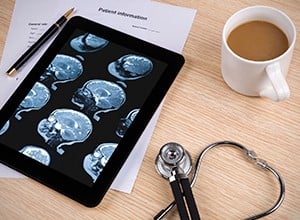
We all know that regular physical activity plays a leading role in the maintenance of overall health. Reduced risk of illness such as cardiovascular disease and type 2 diabetes, weight control, increased energy and sound mental health are just some of its many benefits. Along with a balanced diet, exercise can contribute to a life free of serious health concerns.
But when you are living with a TBI, what are the implications of fitness on your health? That is topic of discussion that is much less common.
Why do many TBI patients shy away from physical activity?
For many survivors of traumatic brain injury, the main priority is to once again become comfortable with the activities of daily life. Participation in physical activity may seem out of the question, and as a result, individuals can quickly adapt to a sedentary lifestyle. The role of fitness in the recovery of traumatic brain injury has not been researched extensively; but recent studies have suggested that the benefits of physical activity are just as relevant for those who have suffered a serious brain injury.
How can exercise impact a TBI patient’s quality of life?
It has been shown that people with TBI who exercise have fewer physical, emotional and cognitive symptoms, which contributes to an overall increase in their quality of life. Study subjects experienced fewer sleep problems, showed less irritability and forgetfulness, and even reported less depression.
A condition known as heterotopic ossification can occur as a result of changes in the brain and reduced activity after an injury. Extra bone may form around the joints which causes pain and discomfort and can be a serious obstacle in an otherwise uncomplicated recovery. However, it can be prevented and reduced with physical activity.
Regular exercise is crucial in the control of side effects, which can otherwise interrupt an individual’s ability to return to a normal life. Considering that this is the goal for many TBI survivors, the importance of a healthy lifestyle is undeniable.
Can exercise also benefit the recovery of the brain itself?
Physical activity does have a tremendous impact on the health and recovery of the brain itself. Studies have shown that regular exercise results in increased blood flow and neuro-regeneration of the hippocampus, the area that controls memory. According to the Brain Injury Recovery Network, a physically active lifestyle can actually assist in restoring the damaged areas of the brain.
It is evident that physical activity has a significantly positive impact on not only controlling the physical, emotional and cognitive symptoms that come with a traumatic brain injury, but also facilitating the recovery of impaired areas of the brain as well.
We’re proud to be advocates of healthy living
McLeish Orlando is proud to advocate the importance of healthy living both in our office and for our clients year-round. We’re dedicating the month of June to celebrate a new health initiative. We invite you to keep up with our #MOfit campaign on Twitter and be sure to check back for more blog posts on healthy living.





